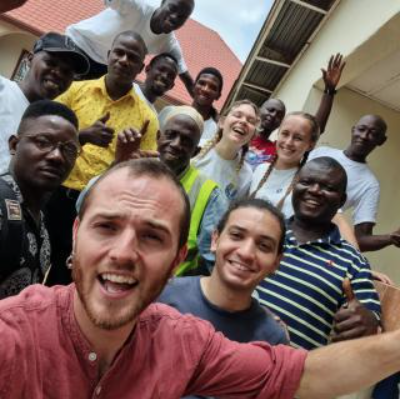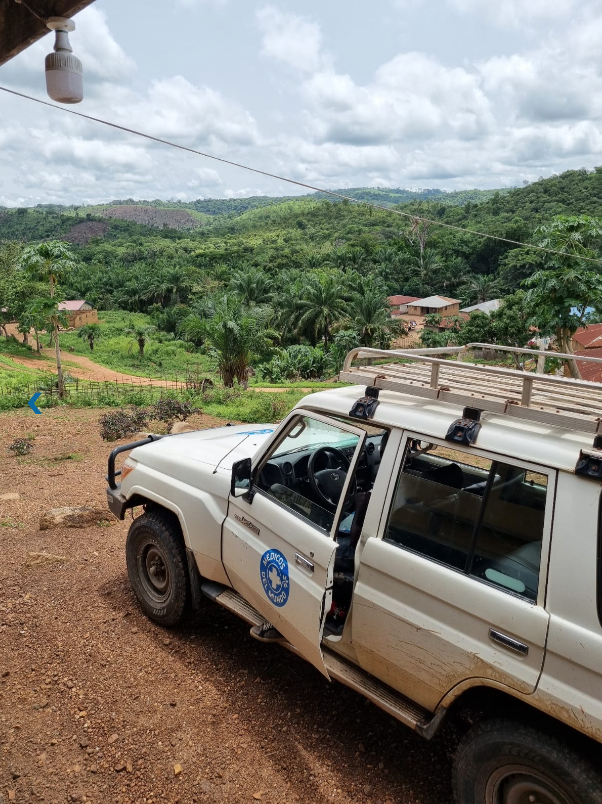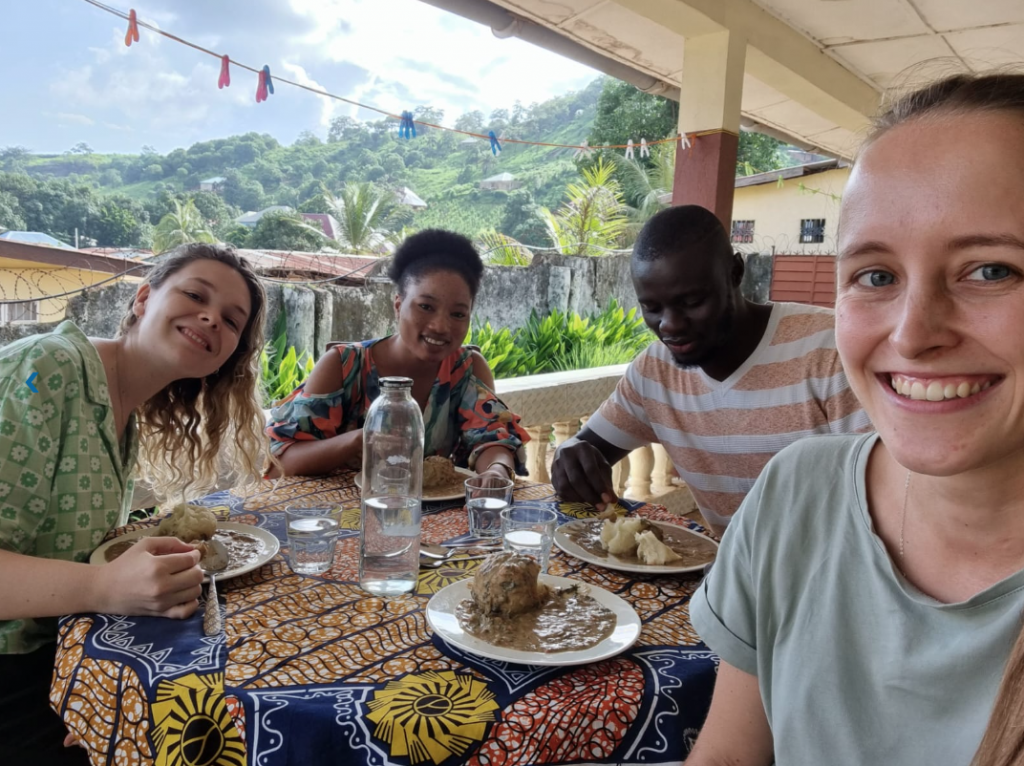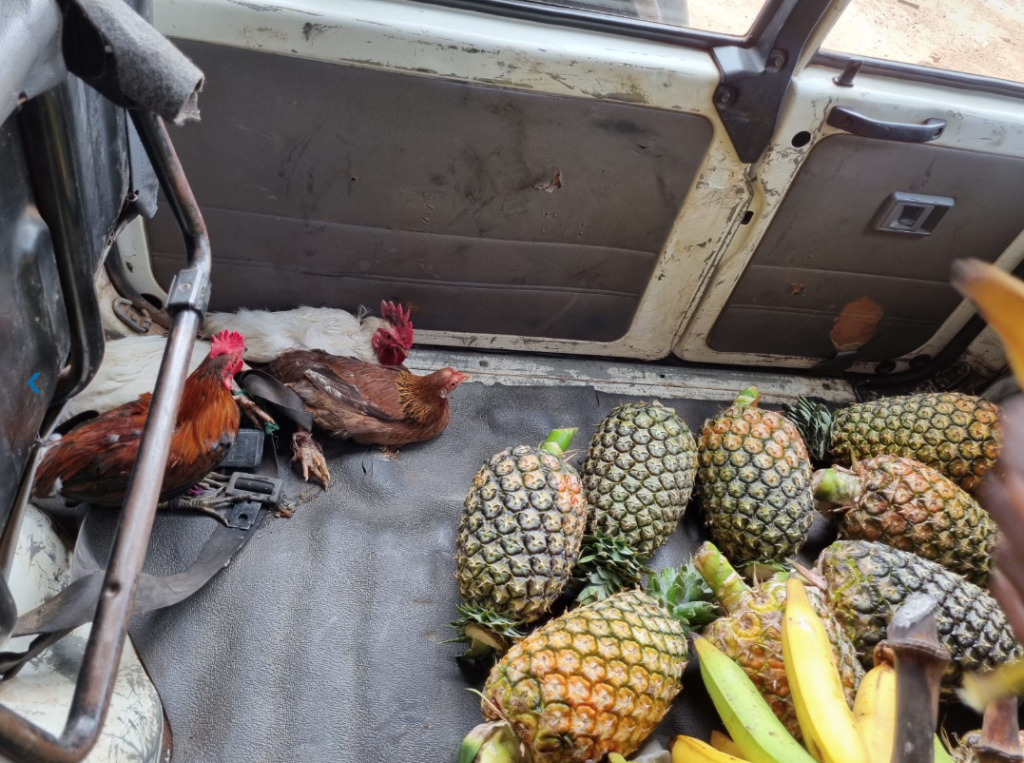
A go mis yu Salone
by Kim Beentjes, EUAV in Sierra Leone
In May 2022, I arrived in Kabala, Sierra Leone to work with Médicos del Mundo (MdM) as a Monitoring, Evaluation, Accountability and Learning (MEAL) Officer. I chose to work with MdM as I have a background in public health and public policy and I had been looking for an opportunity to work in this sector for a while. After a long application process, with my first interview in December 2021, preparation training in Pisa in February 2022, I flew into Sierra Leone in May 2022.
The healthcare system in Sierra Leone is fragile, it has endured many bouts of conflict including a civil war and the Ebola outbreak and still has one of the highest maternal mortality rates in the world. I have always had an interest in Sexual and Reproductive Health and Rights (SRHR) and maternal healthcare so this posting was an incredible opportunity for me.
Arriving at Lungi Airport was a very overwhelming experience. I was very happy to arrive together with the other EUAV Gigi who works as a nurse with MdM. There was a lot of chaos, it was unclear where to go, people ask you if you want a ferry, if you want to exchange money, if they can carry your bag, and at the same time we had to arrange our entry visa and approval of our COVID-19 vaccinations. After a lot of confusion and the person stamping my passport trying to get a bribe from me for a longer visa, we made it out of the airport.

The next day we drove straight to Kabala with MdM’s driver, a 5-hour drive towards the north of the country. The guesthouse exceeded my expectations a lot. It is a large house and we are very fortunate to have our own water well providing water for the house and the office, which is within the same compound. We have solar panels that provide us with electricity 24 hours a day, which is a privilege in Sierra Leone. We also have a mango tree inside our compound, which was a blessing as we arrived during the mango season.
Kabala is beautiful, it’s located in the Koinadugu district and surrounded by mountainous areas. People are very friendly and all kids say hi to you in the streets. Coming from the very flat Netherlands, I really appreciate the hills around our house and we often go for beautiful walks with the most amazing views, which are just 20 minutes away from our house. Another thing I loved to do is cooking local food together with our friends from Kabala, with my all-time favourite being fufu with groundnut soup.

My work as a MEAL Officer was often challenging. The MdM team in Sierra Leone has no permanent MEAL officer, so the work is divided between the very busy colleagues. On top of this, data collection in country is difficult and it takes a while to understand the very complicated healthcare system, with many abbreviations. Data is collected in the health facilities in villages, often by people with no training on this. After that the M&E team of the District Health Management Team (DHMT) takes the data from all the health facilities and enters it into the data collection system called the District Health Information System 2 (DHIS2). With challenges on electricity in health facilities and the difficulty in transport, especially during the rainy season, data often arrives late or not at all.
Despite these challenges, I learned a lot from this experience. I will look back fondly on my work where I visited villages in Koinadugu district. The roads here are not flat like the Netherlands so the bumps and dips make me feel like I’ve completed a workout when I arrive at the health facilities. We were always welcomed with open arms, not only by the health staff but also by village chiefs. In one of the villages we went home with eight extremely large pineapples and six chickens, as a token of appreciation for the work Médicos del Mundo is carrying out.

Sierra Leone is a beautiful country with lovely people and I would recommend anyone to visit. It is with pain in my heart that I will be leaving Kabala soon to go back home. One of the things that is very interesting about Sierra Leone is the tolerance between different religions. The majority of people are Muslim or Christian. Before meetings or training there was usually a prayer for both religions. Another thing that made my experience great was the local Médicos del Mundo team and our colleagues at the DHMT. I learned a lot from them about the healthcare system, MdM’s projects, and generally about Sierra Leone.
Boku tenki Salone!
